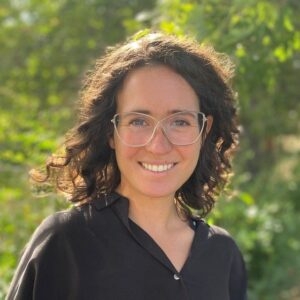Blue Carbon Credits: Finance Opportunities to support People, Nature, and Climate
–
Online
Free
Open to the Public

Blue carbon holds great potential as an ocean-based solution to climate change, while also providing a broad array of co-benefits.
Blue Carbon Credits: Finance Opportunities to support People, Nature, and Climate
Speaker: Lindsay Cope, Mediator and Program Manager, Meridian Institute
Tuesday, November 8, 2022
6:00pm to 7:00pm Pacific Time
Online via Zoom (details below)
About the Topic
The blue carbon market requires good governance and cross-cutting partnerships to ensure credible long-term project results and best practices that are sustainable and equitable. The High-Quality Blue Carbon Principles and Guidance is a foundational document for actors engaged with blue carbon, on both the supply and demand side. This document provides context for blue carbon projects and credits as a nature-based solution in the rapidly evolving voluntary carbon market, while also providing guardrails for generating blue carbon projects and credits that deliver triple benefits of preserving biodiversity and ecosystem health, enhancing community livelihoods, and providing carbon sequestration and removal. The ability to derive these benefits via blue carbon initiatives is based upon the functions of healthy marine ecosystems, particularly mangroves, seagrasses, and saltmarshes. All of these ecosystems have the potential to provide marketable carbon assets, through well designed projects that apply principles and guidelines that assure they are of high quality.
About the Speaker
Lindsay Cope is a Mediator and Program Manager in Meridian Institute’s Dillon, Colorado office. Her portfolio includes voluntary carbon markets, plastics, and sustainable fisheries. Prior to joining Meridian, Lindsay worked in community-based natural resource management; in this role she supported fishing communities in the Philippines to conserve and restore coastal ecosystems. And, at the Santa Lucia Conservancy, a land-trust in California that stewards 18,000 acres of wildlands, she oversaw conservation easements and supported biodiversity friendly wildfire resilience planning in the wildland-urban-interface. Lindsay completed her Masters at the Middlebury Institute in International Environmental Policy, with a focus on Ocean and Coastal Resource Management in 2017.
Recommended Reading
- the Meridian Institute website
- “High-Quality Blue Carbon Principles and Guidance: A Triple-Benefit Investment for People, Nature, and Climate,” published by the Meridian Institute November 7, 2022
Zoom Link to Join
https://middlebury.zoom.us/j/91351225266?pwd=NFdyQVRJcWlOSXAwN043V3BoL000dz09
Password: HappyOcean
Meeting ID: 913 5122 5266
Or iPhone one-tap :
US: +16694449171„91351225266# or +16699006833„91351225266#
Or Telephone:
Dial(for higher quality, dial a number based on your current location):
US: +1 669 444 9171 or +1 669 900 6833 or +1 253 215 8782 or +1 346 248 7799 or +1 301 715 8592 or +1 312 626 6799 or +1 386 347 5053 or +1 564 217 2000 or +1 646 876 9923 or +1 646 931 3860
Phone Password: 7362729534 (no participant ID, press # to bypass)
International numbers available: https://middlebury.zoom.us/u/aezDx4SoHL
Questions
The Center for the Blue Economy is a research organization at the Middlebury Institute of International Studies. Our mission is to promote a sustainable ocean and coastal economy (the “Blue Economy”) through leadership in research, analysis, and education. For questions contact: Rachel C. at cbe@middlebury.edu or visit centerfortheblueeconomy.org or call 831-647-4183 (must leave message and receive call back).
